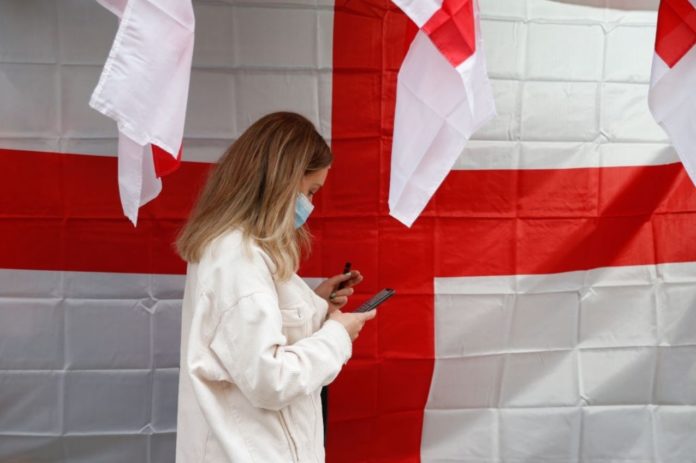Despite the coronavirus epidemic, Euro 2020 was the first major sporting event to enable fans to attend. UEFA has labelled this a success and has stated that it is not to blame for the increasing number of cases.
A large audience of 60,000 will be hoping that England or Italy will win the Euro 2020 trophy on Sunday night at Wembley Stadium, depending on their loyalties.
Others, however, are hopeful that the tournament’s final, which will take place in 11 locations across the continent, will not become a coronavirus super-spreader event.
- Does This Mean We Stopped Being Animal and Started Being Human Due to ‘Copy Paste’ Errors?
- The One Lifestyle Choice That Could Reduce Your Heart Disease Risk By More Than 22%
- Aging: This Is What Happens Inside Your Body Right After Exercise
- Immune-Boosting Drink that Mimics Fasting to Reduce Fat – Scientists ‘Were Surprised’ By New Findings
- Gun Violence in America: What They Don’t Talk About at the Debate
Three positive tests in the Italian media prior to the big game were the latest reminder that the epidemic is far from over, and public viewing in Rome has been scrapped.
Crowds at all stadiums, ranging from 14,000 in Munich to a packed house in Budapest, thrilled the players and the controlling body UEFA while raising concerns at the World Health Organization and among lawmakers.
German Interior Minister Horst Seehofer named UEFA “irresponsible” and Europe’s health agency has said that some 2,500 infections are linked to the tournament, ranging from London and Glasgow to St Petersburg.
UEFA president Aleksandar Ceferin meanwhile insisted that matches were safe because of strict health protocols and blamed other factors.
“Some say 2,000 Scottish fans were infected, but the Scottish fans who went to the match [against England at Wembley] were tested,” Ceferin told the BBC on Friday.
“There were also 20,000 who came to London without tickets. You are not tested in the park, but to accuse all football of spreading the virus is irresponsible in my opinion.”
Fast rising infection numbers, mainly owing to the highly contagious Delta variant of the virus, did not stop England from allowing more fans to Wembley as the tournament progressed. The same applies for Wimbledon as the government is using them as tests ahead of a planned July 19 easing of most virus restrictions in the country.
That day is just four days before the start of the Tokyo Olympics where fans are not allowed and public viewing will also not take place.
“Olympics without fans is a pity. It shows again that other rules apply at the almighty football,” German javelin thrower Johannes Vetter said in a direct attack on football.
UEFA’s insistence of fans ended the Group E host city efforts of Dublin and Bilbao with those matches moved to St Petersburg and Seville respectively, greatly increasing travel.
Switzerland also complained about their travel schedule with a match in Rome between two in Baku in far-away Azerbaijan, plus knock-out games in Bucharest and St Petersburg.
England by contract had six of their seven games at Wembley and one in Rome. All semi-finalists, the losers in the last four being Denmark and Spain, played all three group games at home.
Ceferin said such a pan-European tournament, decided upon because of the tournament’s 60th anniversary in 2020, was unlikely to be repeated.
“In a way, it is not correct that some teams have to travel more than 10,000km while others have to only travel 1,000km,” Ceferin said. “It is an interesting idea but it is hard to implement and I don’t think we will do it again.”
UEFA also came under fire for its stance against rainbow colours at Munich’s stadium and for allegedly giving Denmark only the options to continue later in the evening or the next day at noon after their player Christian Eriksen had to be revived on the pitch after suffering cardiac arrest.
Denmark’s heroic run to the semis after the shock was the feel-good story of the tournament which saw world champions France, runners-up Croatia and title holders Portugal out in the last 16 along with big names Germany and Netherlands.
Spain teenager Pedri was among the revelations despite being responsible for one of the tournament record 11 own goals, from almost the centre circle because his goalkeeper Unai Simon blundered terribly.
Czech Patrik Schick scored from a similar distance against Scotland for one of the 140 goals in 50 games before the final for a highest ever average of 2.80 goals per game, including an eight-goal last 16 thriller between Spain and Croatia.
“I have never seen a dramatic Euros like this one, with great matches and surprising results,” Ceferin told the BBC.
- Does This Mean We Stopped Being Animal and Started Being Human Due to ‘Copy Paste’ Errors?
- The One Lifestyle Choice That Could Reduce Your Heart Disease Risk By More Than 22%
- Aging: This Is What Happens Inside Your Body Right After Exercise
- Immune-Boosting Drink that Mimics Fasting to Reduce Fat – Scientists ‘Were Surprised’ By New Findings
- Gun Violence in America: What They Don’t Talk About at the Debate
“It has been a special Euros, for sure. I will remember it as the beginning of normality and the return of fans.”
Just how long that normality will last could however depend on the kind of celebrations after the final between arguably the two best and exciting teams of the tournament.
Photo by Hollie Adams/Getty Images
